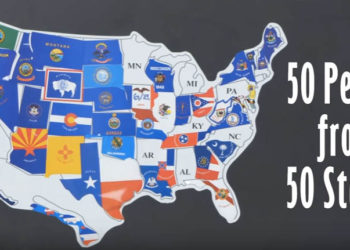Last year the Library Publishing Coalition had a preconference titled “Owned by the Academy” on Open Source Publishing Software. A similar sentiment toward ownership was expressed by university provosts and CIOs when they founded the Unizin Consortium to address issues related to control of their content in digital learning systems.
 As platforms for online learning expanded following the introduction of MOOCs, universities were challenged by a model in which vendors controlled the content and the data generated by student activity. Individual institutions lacked the scale to influence platform development or to achieve cost savings. Founding members of the Unizin Consortium saw the opportunity to collaborate as a way to leverage scale to build a shared infrastructure for learning systems. The goal is to improve learner success by making access to course content more affordable, creating interoperable systems and developing a learning laboratory that uses data to enhance learning outcomes.
As platforms for online learning expanded following the introduction of MOOCs, universities were challenged by a model in which vendors controlled the content and the data generated by student activity. Individual institutions lacked the scale to influence platform development or to achieve cost savings. Founding members of the Unizin Consortium saw the opportunity to collaborate as a way to leverage scale to build a shared infrastructure for learning systems. The goal is to improve learner success by making access to course content more affordable, creating interoperable systems and developing a learning laboratory that uses data to enhance learning outcomes.
The founding Co-Chairs of Unizin were James Hilton, Dean of Libraries and Vice Provost, Digital Education & Innovation at the University of Michigan and Brad Wheeler, Vice President for IT & CIO at Indiana University, who were joined by Colorado State University and the University of Florida, with the following mission:
As we look at the rapidly emerging infrastructure that enables digital learning, we want to bias things in the direction of open standards, interoperability, and scale. Unizin is about tipping the table in favor of the academy.
Concerned with the issues in research publishing, the founders embraced the community model used with Internet2 in which academic institutions retain control over policies and business models that serve the mission of higher education. Unizin’s goal was to develop shared services for its members that enabled them to gain control of their digital future by ensuring that their interests and obligations would be served by their investment in technology.
Today there are 27 college and university members with a total FTE approaching 1M students. Unizin is designed to be extensible and they envision a growing membership with an expanding governance structure. Dues would pay for access to shared services and digital resources. Currently institutional members can be part of a Task Force or one of three Advisory Groups: 1) Teaching & Learning, 2) Libraries and 3) Learning Analytics as a Community of Practice.
There is a growing staff of 20+ headquartered in Austin, TX. Two key leadership roles were filled last year. Aaron Neal who was director of enterprise software at Indiana University is the Chief Executive Officer of Unizin focused on services. Jill Buban who was the senior director of research and innovation at the Online Learning Consortium is the Chief Academic Officer focused on members.
Digital Content
Since it was launched in 2014, Unizin has leveraged the strength of the consortium and negotiated savings on textbooks and course materials that average 60% less than list price. More than 100,000 titles from 19 publishers including some of the largest: Pearson, Cengage and McGraw-Hill. Not only does this “Big Deal” lower the cost of a student’s education, it also provides them with access to course content by the first day of class which can boost their success.

In 2015 Unizin acquired Courseload software which included an eText reader platform and collaborative learning tools for delivery of digital materials such as Open Educational Resources, faculty-authored course packs and publisher content. Renamed Unizin Engage it delivers digital resources on multiple devices. Content can be searched, highlighted, bookmarked and annotated. Instructors can see when students have questions and how often they are interacting with the text. This data can increase analytics capabilities and facilitate opportunities for faculty collaboration and content sharing across Unizin institutions.
To support a common authoring framework for Open Educational Resources (OER) Unizin offers Pressbooks as a platform that lets users publish content in a variety of digital formats such as EPUB, MOBI, PDF, XML, HTML, OpenDocument, and others. It supports the creation of portable, reusable, standards-based content.
Shared Infrastructure
While it is difficult to systematize data generated by customers, Unizin has made progress in negotiating joint licensing deals that require access to the data. Unizin also requires that companies follow Caliper Analytics which enable institutions to collect learning data from digital resources to better understand the learning activity. When these standards are adopted, data from multiple systems can be more easily combined and analyzed.
In addition to a negotiated rate for collective use of Canvas, members also have access to the data associated with their institution and the collective anonymized data set for members. Unizin has worked with Canvas to expand the both quantity and quality of available data, such as data about modules, module content detail, completion requirements and other functions. Modules are critical elements as they allow for customization and flexibility as curriculum become more personalized. The goal was to better understand how specific learner interactions with content and modules relate to learner success.
Unizin is working with a variety of companies in different ways to increase interoperability. For example:
- With Examity (test proctoring) and Kaltura (video platform) to help members implement products.
- With Turnitin (plagiarism detector) and Top Hat (learning technology) to incorporate data into the Unizin Data Platform.
- With Barnes & Noble Education to use BNED LoudCloud’s predictive analytics solution to help identify and support at-risk students with the goal of improving student success and retention.
These partnerships are mutually beneficial as vendors gain ideas and insights from Unizin members regarding which tools and data are most useful and should be prioritized in future system updates.
Learning Analytics
Since vendors have not yet developed an adequate architecture for data management, Unizin created the Unizin Data Platform (UDP) which collects data across the teaching and learning landscape. Several Unizin members are collecting data from their Student Information Systems (SIS) and their Learning Management System (LMS) which is Instructure Canvas.
Once collected, the data is normalized using the Unizin Common Data Model (UCDM) which aligns with and extends the Common Education Data Standards (CEDS). UDP is built on the Google Cloud Platform to provide scalable infrastructure, powerful data analytics and the ability to leverage machine learning solutions to advance Unizin’s work to improve learning research and outcomes in a secure environment.
Since its inception, Unizin has taken steps to become the industry leader in the privacy and security space. Unizin has appointed an assurance officer who has organized a Privacy Task Force and a Security Task Force. The latter is comprised of university Chief Information Security Officers (CISO) in order to develop policies that govern how the data is handled and protected from potential attacks.
Members have access to data in two ways – real time and anonymized data. Real time student performance data can be used by an instructor for feedback and guidance to help the student get back on track. Colleges are still in the early stages of developing tools and strategies to make use of the information in classrooms. The capture and use of the data is likely to evolve with practical teaching and learning practices. The Learning Analytics Subcommittee considers various ethical questions regarding the nature of the analytics and their use.
Anonymized data that is aggregated across the consortium can be used for authorized research purposes. One goal of the UDP is to enable research and experimentation which could enable colleges to conduct experiments that span institutions. Once all consortium members are using UDP, it will provide the largest and richest collection of anonymized learner data in higher education, creating laboratory for advancement of teaching and learning.
Looking Ahead
In five years, Unizin has created what appears to be a solid foundation for future growth which I expect will occur as practical applications emerge from analysis of the data collected. Their foresight and hard work should reveal useful insights that will guide course and curriculum development. I commend them on their progress and remain curious about future outcomes.
Discussion
2 Thoughts on "The Academy Mobilizes – Unizin Tackles Learning Analytics"
It is my understanding there us no opt out for students re their data? I hope the Privacy folks in Unizin are looking to optimize privacy not minimize it as many are concerned may be the case.
A good point and valid concern. I understand several institutions are waiting to implement until the privacy policies are developed. Since they have control of the data, at least they have the option of doing it.



